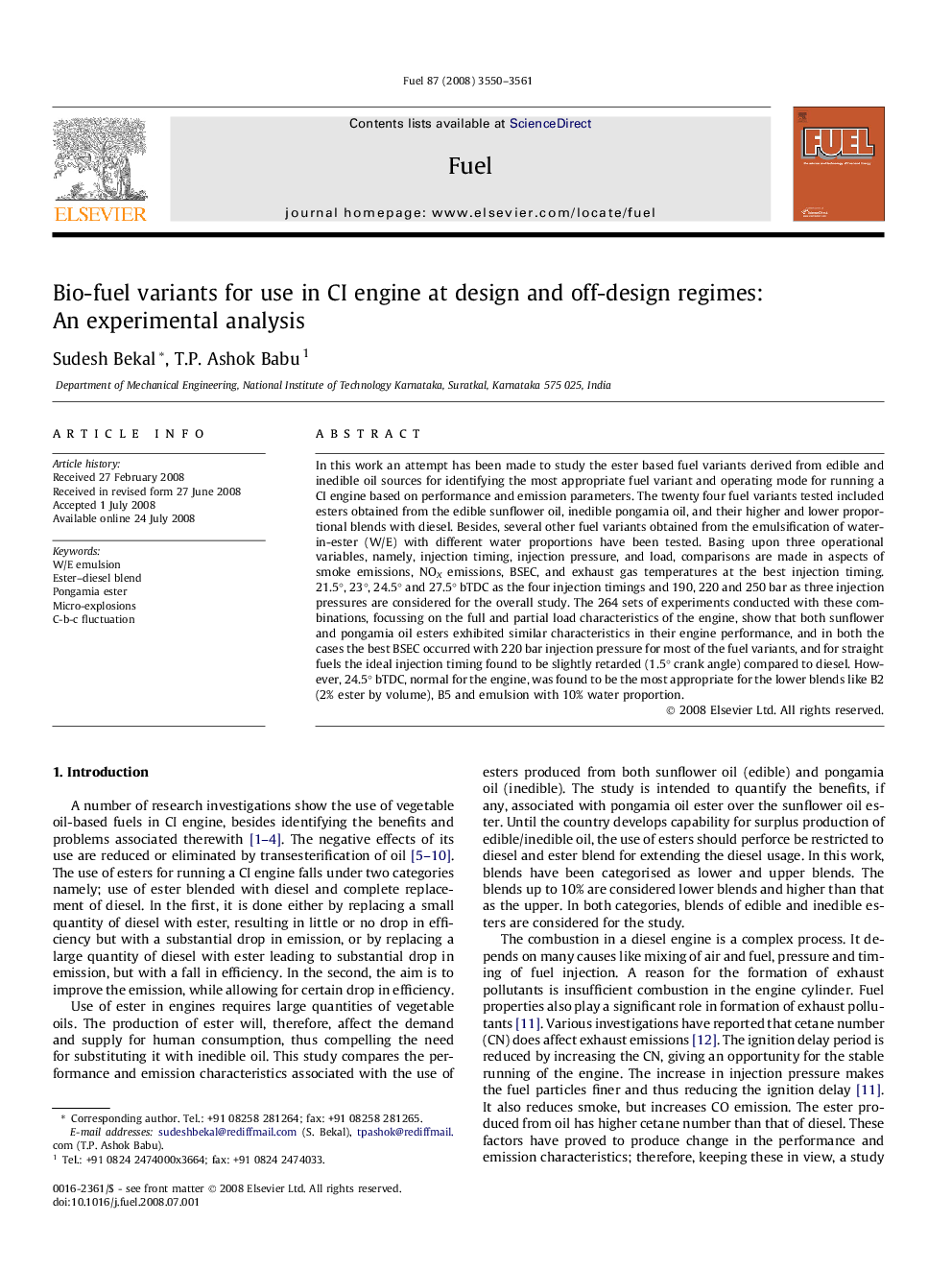| Article ID | Journal | Published Year | Pages | File Type |
|---|---|---|---|---|
| 207712 | Fuel | 2008 | 12 Pages |
In this work an attempt has been made to study the ester based fuel variants derived from edible and inedible oil sources for identifying the most appropriate fuel variant and operating mode for running a CI engine based on performance and emission parameters. The twenty four fuel variants tested included esters obtained from the edible sunflower oil, inedible pongamia oil, and their higher and lower proportional blends with diesel. Besides, several other fuel variants obtained from the emulsification of water-in-ester (W/E) with different water proportions have been tested. Basing upon three operational variables, namely, injection timing, injection pressure, and load, comparisons are made in aspects of smoke emissions, NOX emissions, BSEC, and exhaust gas temperatures at the best injection timing. 21.5°, 23°, 24.5° and 27.5° bTDC as the four injection timings and 190, 220 and 250 bar as three injection pressures are considered for the overall study. The 264 sets of experiments conducted with these combinations, focussing on the full and partial load characteristics of the engine, show that both sunflower and pongamia oil esters exhibited similar characteristics in their engine performance, and in both the cases the best BSEC occurred with 220 bar injection pressure for most of the fuel variants, and for straight fuels the ideal injection timing found to be slightly retarded (1.5° crank angle) compared to diesel. However, 24.5° bTDC, normal for the engine, was found to be the most appropriate for the lower blends like B2 (2% ester by volume), B5 and emulsion with 10% water proportion.
